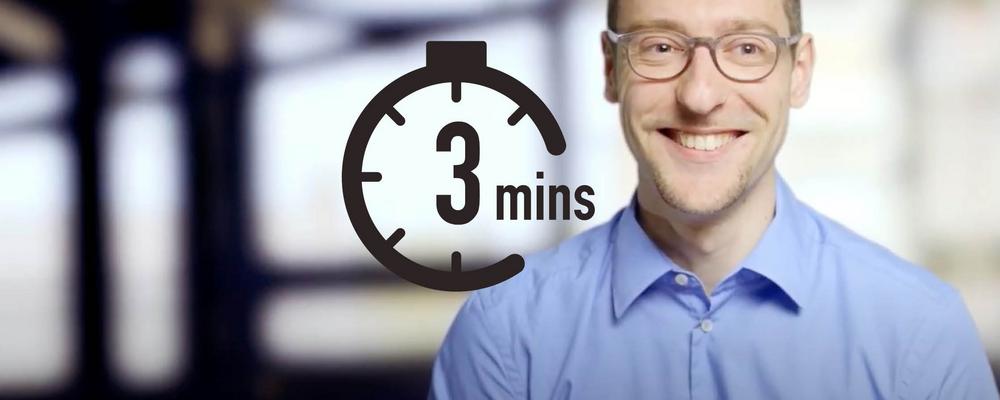What can you do in three minutes?
"Quite a lot in fact, although three minutes really is too little time to explain the research I’ve been doing for two years. It’s a big challenge to compress the information and also make it comprehensible. I have received some tips: keep it general and try to connect my research to everyday challenges. Mostly I explain my research to people who already know about what I’m doing. This will be a completely different audience!"
Have you practised a lot?
"A lot yes. When I applied for the competition, I had to submit a video and I made quite a few videos one could say... You can’t be content with just thinking about what to say, and in three minutes there is no room for a lot of ums and ahs and other padding."
What do you think your chances are in the competition?
"I have no idea. The only information I have about my fellow competitors is their subject areas and they seem really interesting, but I hope I have a subject area that everyone can feel that they recognise and are interested in. Let’s hope so!"
Will there be a bunch of Fokken supporters there cheering you on?
"Not what I know of, and if there are any cheerleaders there, they haven’t been paid by me, that’s for sure. But it would be great!"
To give you a bit of extra training and an even more challenging challenge, you’ll get just one (!) minute to describe your thesis. Shoot!
"My thesis is about human reasoning, how people arrive at decisions, deductively and logically. The world is full of contradictions and various facts: Should we get vaccinated or not? Should we join NATO or not? I’ve designed a model that simulates what people’s processes look like when their reasoning is fallacious. My model allows me to predict how long it will take to make a decision. The model is a blueprint of the human brain, so I can do this by knowing how long the brain signals take. It’s a bit science fiction!"


